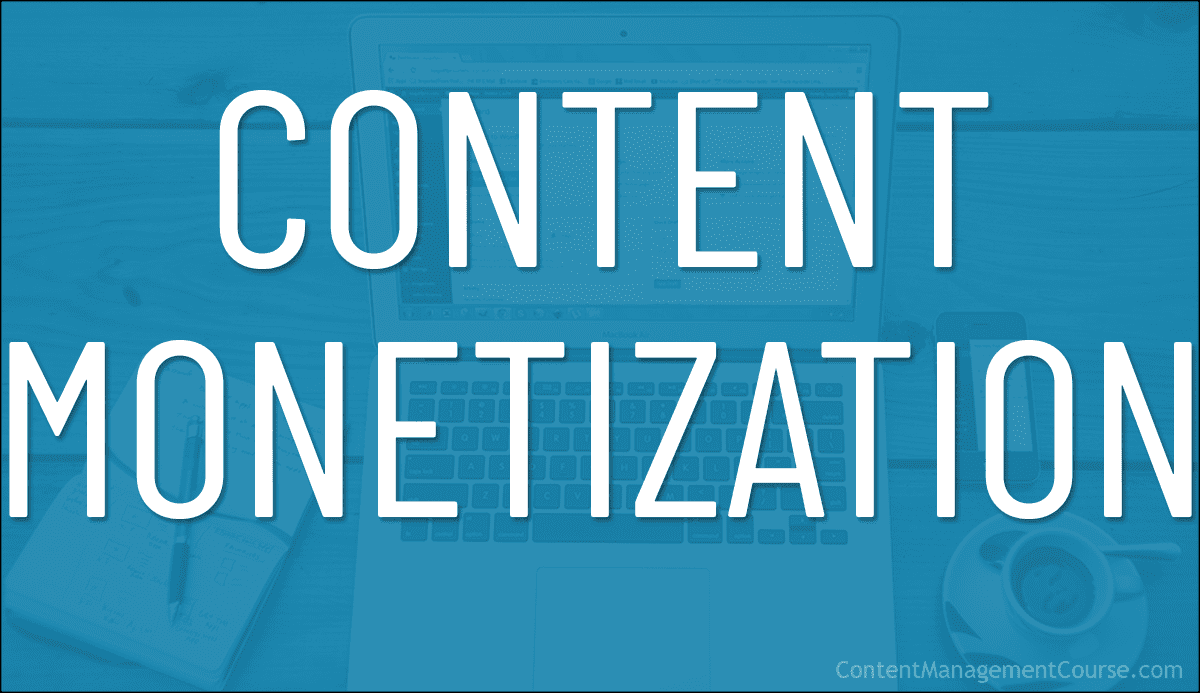eBook Content Monetization Strategies
 This is part 6 of our article series on content monetization strategies.
This is part 6 of our article series on content monetization strategies.
In this series of lessons, we look at different methods you can implement to monetize your digital content.
Selling eBooks on Your Website
eBooks are a popular choice for consumers looking for in-depth information on a specific topic or interest. By creating and selling your own e-books, you can establish yourself as an authority in your niche and generate passive income.
To successfully sell eBooks on your website, it’s important to first identify your target audience and create content that resonates with them. Consider what topics are trending in your niche and what problems your audience is looking to solve. By addressing these pain points in your eBooks, you can attract more buyers and increase your sales.
Next, focus on creating high-quality eBook content that provides value to your readers. Make sure your eBooks are well-written, well-designed, and offer actionable advice that your audience can implement.
Consider using an AI-powered eBook creation tool like Designrr to generate chapter outlines and descriptions, and hiring a professional editor or designer to help polish your e-books and make them more appealing to buyers.
When it comes to pricing your eBooks, consider the value you are providing and how much your audience is willing to pay. You can experiment with different price points to see what works best for your target market. Additionally, consider offering discounts or promotions to incentivize more people to purchase your e-books.
Lastly, promote your eBooks on your website and through your other marketing channels. Create targeted landing pages, run email campaigns, and leverage social media to drive traffic to your e-book sales pages.
By creating high-quality e-books, identifying your target audience, and effectively promoting your products, you can increase visibility and attract more buyers.
Partnering with eBook Retailers for Distribution
eBooks are a popular form of content that can be easily distributed and sold online. By partnering with e-book retailers for distribution, you can reach a wider audience and increase your revenue potential.
There are several e-book retailers that you can partner with to distribute your e-books. Amazon Kindle Direct Publishing, Apple Books, and Barnes & Noble Press are just a few examples of popular e-book retailers that can help you reach a larger audience. By listing your e-books on these platforms, you can take advantage of their large customer base and marketing resources to increase your sales.
When partnering with e-book retailers, it’s important to optimize your e-book listings for maximum visibility and sales. This includes creating eye-catching cover designs, writing compelling book descriptions, and using relevant keywords to improve searchability. You should also consider offering promotional discounts or free giveaways to attract more customers to your e-book listings.
Additionally, you can leverage social media and email marketing to promote your e-books and drive traffic to your e-book retailer listings. By sharing excerpts, reviews, and special offers with your followers, you can generate buzz and interest in your e-books, leading to more sales and revenue.
In conclusion, partnering with e-book retailers for distribution is a valuable strategy for website owners looking to monetize their content. By leveraging the reach and resources of e-book retailers, you can increase your visibility, attract more customers, and ultimately boost your profits from selling e-books.
Monetizing Ebook Content: Ideas
Here are some ebook content monetization ideas for you to explore:
- Sell It On Your Own Website: Set up an eCommerce site or section of your site and sell it directly on your own website.
- Sell On 3rd-Party Platforms: Utilize platforms like Amazon Kindle Direct Publishing, Apple Books, Barnes & Noble Press, Smashwords, Rakuten Kobo, Visme, and others to sell your ebook to a wide audience.
- Paid Speaking Gigs: Leverage your ebook as a platform-building tool to secure paid speaking engagements or workshops.
- Create Expensive Courses or Training: Develop and sell high-priced courses or training programs related to the content of your ebook.
- Multiple Format Sales: Offer your ebook in various formats, such as Kindle, paperback, and audiobook, to cater to different audience preferences.
- Sell Sponsorships: There are various options for selling sponsorship in an eBook. For example:
- List sponsors on the front, back, or within the content of your ebook, with or without hyperlinks to their websites or specific pages.
- Endorse or mention your sponsor’s products or services withing your ebook or on your website or sales/marketing literature.
- Have sponsors contribute a chapter or section of your book and list them at the beginning or end of the chapter.
- Offer sponsors equity (i.e. a share or percentage of the profits).
- Sell In-Content Advertising: Place ads within the content of your book.
- Direct Sales: Utilize platforms like Payhip for direct sales of your ebook, providing a fast, simple, and cost-effective way to reach your audience.
- Affiliate Links: Add affiliate links inside your ebook to promote topic-related products and services.
- Free Download: Offer your book as a free download and use it to promote higher-priced products or services.
- Use It As A Calling Card: An eBook can be a great calling card to another business opportunity. For example, to secure speaking engagements, consulting fees, membership site, lead generation, etc.
- Create A Bundled Offer: Bundle your eBook with other products. For example, sell several e-books as one package, include it in an e-course, upsell it with an audio version, video or slide presentations, etc.
Resources
For more information, tutorials, and resources to help you monetize eBook content, go here:
- Content Marketing: Self Publishing
- Content Marketing With eBooks
- How To Profit With PLR And Resell Rights Products (Video Course)
Also, see these articles…
This is the end of part 6. To continue reading this article series, click on the pagination section below.
